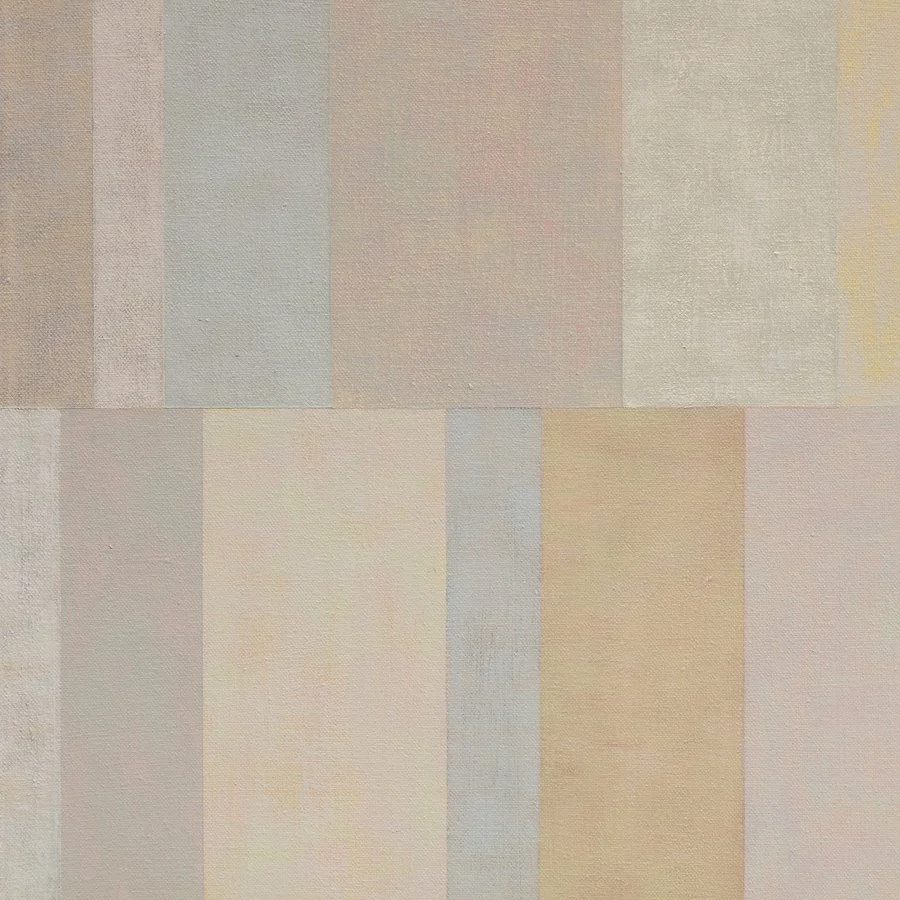I couldn't sleep last night. I started a new painting yesterday, and I love the composition. It's an elongated, twisted portrait that reminds me of Brancusi's Bird in Space (pictured to the left). The problem is that I composed the work for a tall, narrow stretcher that I happened to have leftover from an old painting idea that I ended up not pursuing -- always good to reuse old stretchers for new and improved ideas. Except that I measured it wrong, so the new composition I planned was actually 4 inches longer than the stretcher! I thought I could just crop the image and use the stretcher I had, so I continued on my merry way, thinking it would all work out just fine. But after painting all day yesterday, that nagging voice in my head would just not shut up. "It's too short." "It'll never be as good as the original version." "You should stop painting this." "Don't sacrifice a better composition in the name of speed and convenience." MAN!!
I was really happy with how painting actually went yesterday, so it became even more tortuous to consider abandoning it now that paint was actually on the canvas. I went to bed wondering if I was just being too picky, if it was worth all the extra work it will take to re-do it, if when I re-paint it, it will be as good as what I did yesterday. I just couldn't come to terms with the fact that a few inches was making such an enormous difference in how the work was perceived!
But with fresh eyes this morning, there is really no doubt. The longer version is better. It will bug me every time I look at the painting if I don't change it now. SO frustrating. But lesson learned. As soon as I saw that the stretcher was a different size than my composition, I should have stopped cold. Considering I custom-make my stretchers down to the 16th of an inch, how could I not see that chopping four inches off my composition might not be the best idea? Oh well. This morning I've made the new stretcher. Now I just have to muster up the courage to strip the other painting off its support and toss it into the trash.
I was really happy with how painting actually went yesterday, so it became even more tortuous to consider abandoning it now that paint was actually on the canvas. I went to bed wondering if I was just being too picky, if it was worth all the extra work it will take to re-do it, if when I re-paint it, it will be as good as what I did yesterday. I just couldn't come to terms with the fact that a few inches was making such an enormous difference in how the work was perceived!
But with fresh eyes this morning, there is really no doubt. The longer version is better. It will bug me every time I look at the painting if I don't change it now. SO frustrating. But lesson learned. As soon as I saw that the stretcher was a different size than my composition, I should have stopped cold. Considering I custom-make my stretchers down to the 16th of an inch, how could I not see that chopping four inches off my composition might not be the best idea? Oh well. This morning I've made the new stretcher. Now I just have to muster up the courage to strip the other painting off its support and toss it into the trash.


